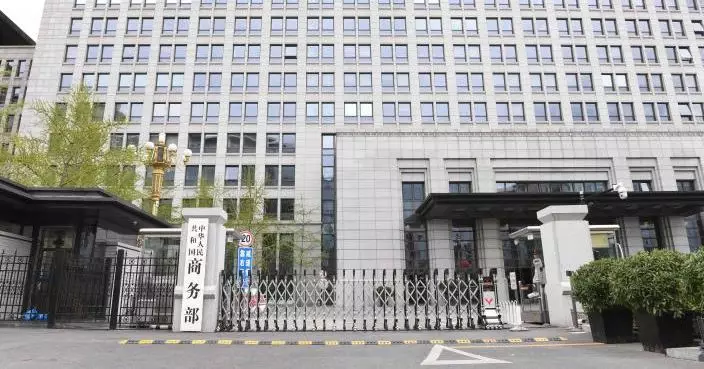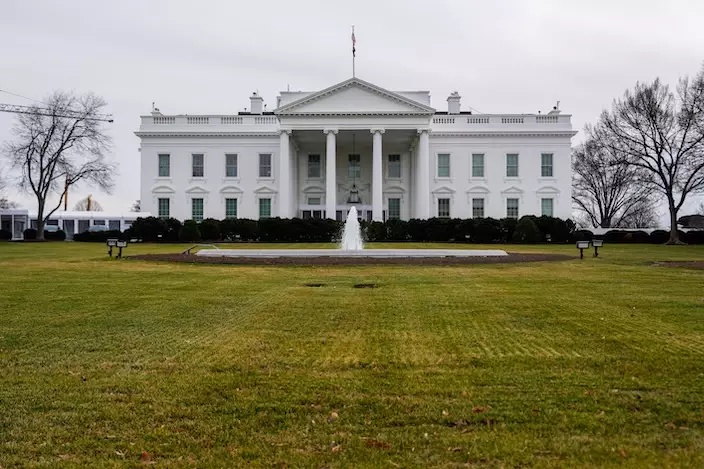A recent trade agreement between the United Kingdom and the United States has sparked concerns that it may serve as a blueprint for Washington to coerce allies into isolating China's supply chains.
On May 8, the UK and the US signed their first so-called "trade and tariff agreement," which includes strict "security" clauses imposed by the US on strategic sectors such as British steel and pharmaceuticals, with underlying calculations targeting China's supply chains. According to a May 13 report in the Financial Times, China responded by emphasizing a "basic principle" that co-operation between countries should not undermine the interests of third parties. The report suggests that these remarks may pose greater challenges for the UK government as it attempts to reset its relationship with China.
According to the Financial Times, the "trade agreement" reached between the US and the UK last week is the first since the Trump administration announced its "reciprocal tariff" plan last month. It involves imposing conditions on the British steel and pharmaceutical industries, requiring the UK to “promptly meet US requirements on the security of supply chains and the nature of ownership of relevant production facilities" in order to qualify for tariff exemptions or reductions from the US.

The UK and the US signed the first so-called "trade and tariff agreement," which includes underlying calculations targeting China's supply chains.
The agreement stipulates that tariff reductions on British goods will depend on "Section 232 investigations," which assess whether and how specific imported products affect US national security. Although the clause ostensibly applies to all third countries, British officials have acknowledged that Trump has indicated China as the intended target.
Former British trade official, Allie Renison, believes that this clause represents a further escalation of the US government's long-term policy of restricting China's involvement in the global supply of strategic goods. Washington hopes that the UK and other countries will disclose critical information, ultimately severing economic ties with China, particularly in sensitive sectors such as steel. Renison suggests that if the UK further aligns its trade policy with the US in exchange for tariff exemptions, China is likely to retaliate in some forms.
Diplomats further point out that the "security clauses" agreed upon by the US and the UK may serve as a "template" for the US to compel other allies to exclude China from critical supply chains, coercing allies like the UK to reduce trade and co-operation with China in sensitive areas.
According to a British government consultant focused on trade, the UK's acceptance of the US "security clauses" has surprised and unsettled China, especially as Prime Minister Keir Starmer's government has been working to improve relations with China. A Chinese source, who requested anonymity, stated that China will need to respond and that the UK should not hastily agree to this agreement.
It's reported that, regarding the sections of the agreement involving China, the British government claims that the trade agreement signed with the US aims to "secure thousands of jobs in key sectors, protect British businesses, and lay the groundwork for greater trade in the future," but also emphasizes that "trade and investment with China remain important to the UK," and that the UK is "continuing to engage pragmatically in areas that are rooted in UK and global interests".
The report notes that China had previously warned countries against signing trade agreements with the US that threaten Chinese interests. A spokesperson for the Chinese Ministry of Commerce stated that China has noticed that some economies are also negotiating with the US, emphasizing that appeasement does not bring peace, and compromise does not earn respect. Adhering to principles and upholding fairness and justice are the correct ways to safeguard one's own interests. Regardless of how the international landscape changes, China will steadfastly expand opening-up, firmly safeguard the multilateral trading system with the World Trade Organization at its core, and unswervingly share development opportunities with countries around the world. China is willing to work with all parties to continuously deepen mutually beneficial co-operation, strengthen communication and co-ordination, jointly resist unilateral protectionism and hegemonic bullying, and jointly maintain free trade and multilateralism, promoting inclusive economic globalization.
Guancha (The Observer Net) cited Zhang Yansheng, a senior researcher at the Chinese Academy of Macroeconomics, who stated that Washington will clearly force other countries to accept similar clauses in trade negotiations to isolate China, and that the UK's move is unfair to China. "This poison pill clause is actually worse than the tariffs."
However, Zhang Yansheng believes that China should not immediately take retaliatory actions but should directly raise this issue in dialogues with the UK. He argues that the fundamental problem lies with the US, while other countries are only secondary actors, and that the issue should be discussed in trade talks with the US.
From May 10 to 11, senior Chinese and US economic and trade officials held talks in Geneva, Switzerland, where both parties agreed to reduce tariffs by 115% within 90 days, and issued a joint statement on the outcomes of the meeting.

On May 12, the Ministry of Commerce stated that the equal dialogue and consultation between China and the US to resolve differences is an important step.
On May 12, a spokesperson for the Ministry of Commerce stated that the equal dialogue and talks between China and the US to resolve differences is an important step towards further bridging divides and deepening co-operation, laying the foundation and creating conditions for further progress. The two sides reached several positive consensus points in the joint statement, recognizing the importance of bilateral economic and trade relations to both countries and the global economy, as well as the importance of sustainable, long-term, and mutually beneficial bilateral economic and trade relations. Both sides will continue to advance relevant work in the spirit of mutual openness, continuous communication, co-operation, and mutual respect.
The spokesperson added that both sides have agreed to establish a China-US economic and trade consultation mechanism to maintain close communication on their respective concerns in the economic and trade fields and to conduct further consultations. The Chinese representative is Vice Premier of the State Council, He Lifeng, and the US representatives are Treasury Secretary, Scott Bessent and Trade Representative, Jamieson Greer. The two sides will conduct consultations regularly or irregularly in China, the United States, or in agreed-upon third countries. As needed, the two sides may conduct working-level consultations on relevant economic and trade issues.
Deep Throat
** The blog article is the sole responsibility of the author and does not represent the position of our company. **










